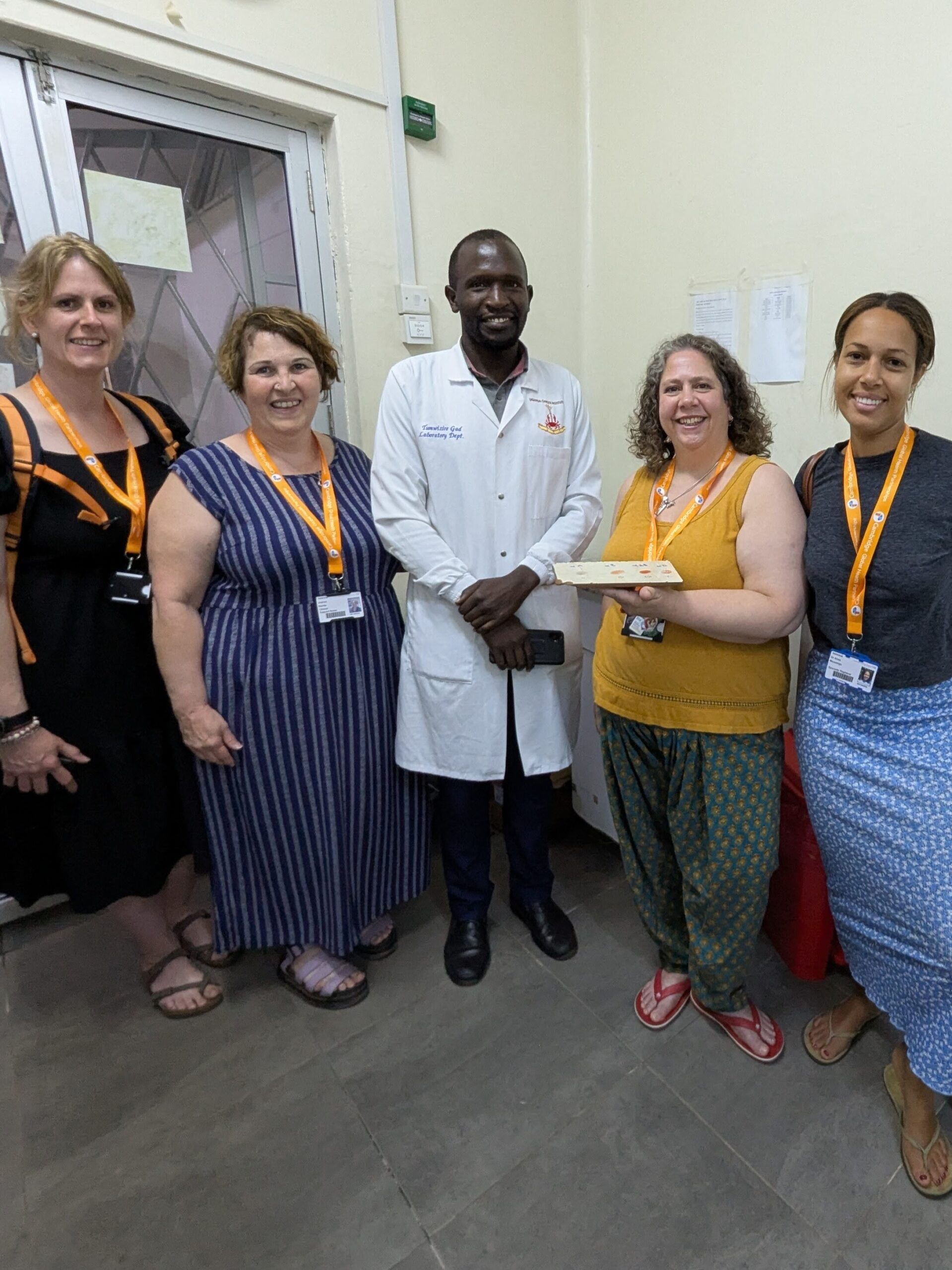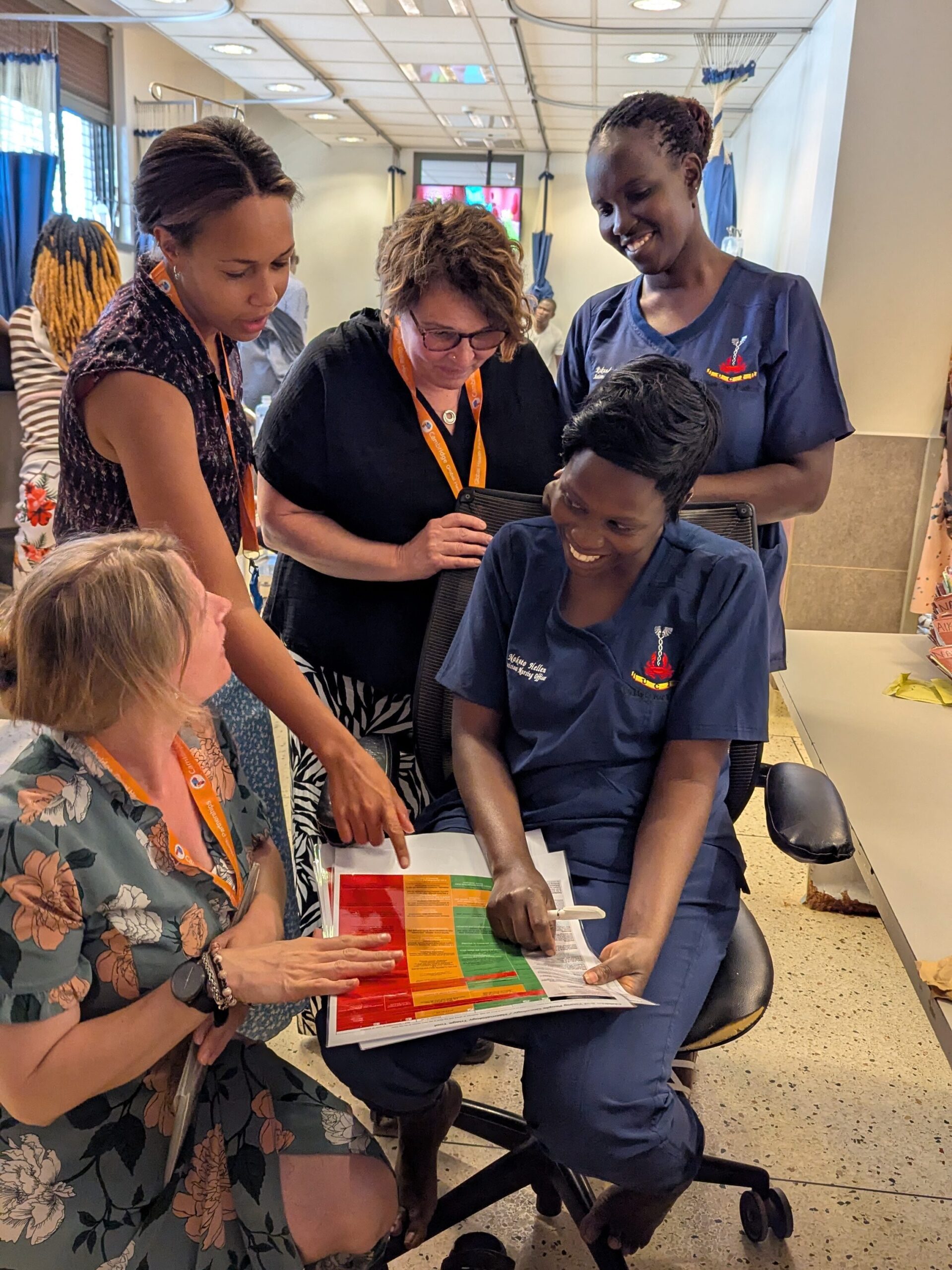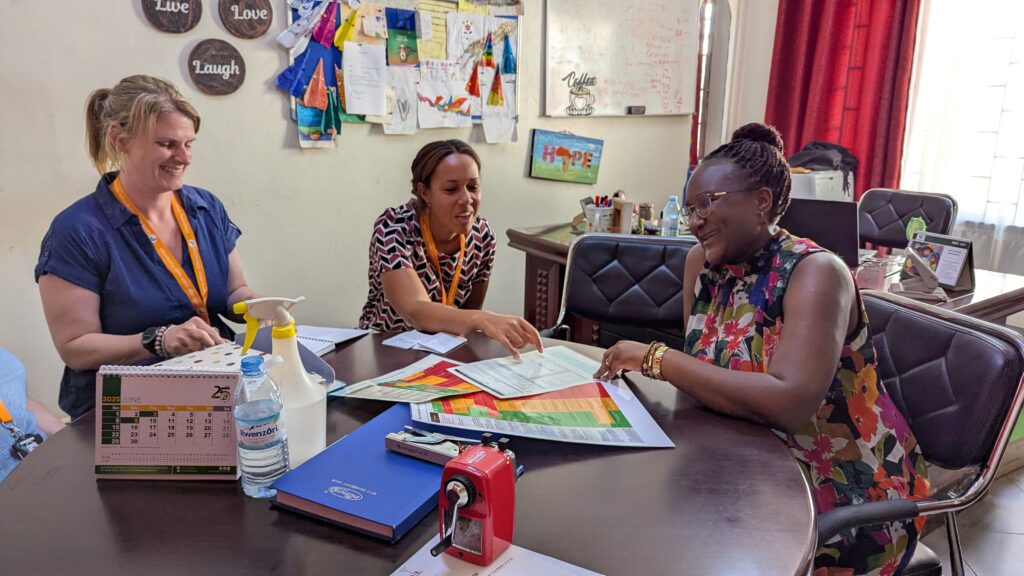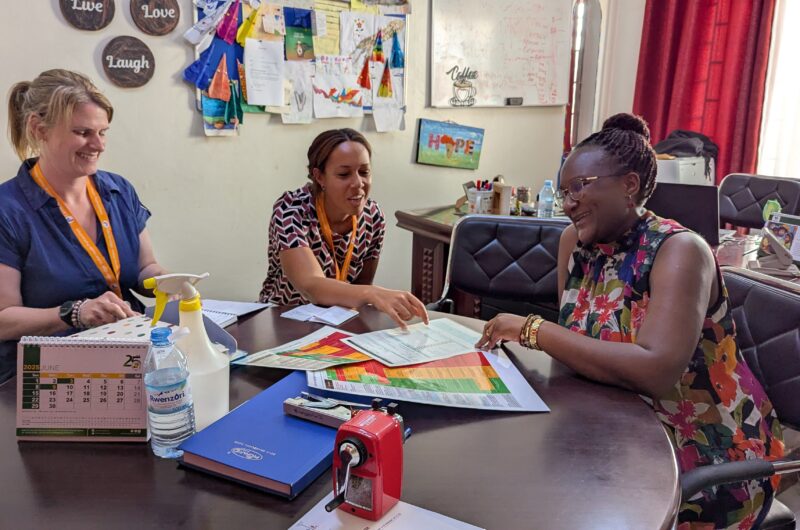Anna Muwanga is Paediatric Registrar and CGHP East of England Global Health Fellow. For her fellowship year, she’s been involved in the Kampala-Cambridge Paediatric Cancer Health Partnership. Here she explains the value of a week-long visit to the Uganda Cancer Institute, to build relationships with the nursing staff, and test and refine a triage tool in person.
“I grew up living in both Uganda and the UK where I saw the difference that access to healthcare makes to a population. This led me to pursue a career in global health; to be a part of a process that is improving access to and quality of health care for all.
The Paediatric Cancer Partnership is focused on improving care for children with cancer in both Uganda and the UK, for example by improving chemotherapy protocols, speeding up diagnosis and strengthening nursing care. The overall goal is to support the World Health Organization’s (WHO) objective of achieving at least 60% survival for all children with cancer by 2030.
Throughout my fellowship year, I have been working on improving the process by which children access care. This includes standardising the way children are triaged in the Outpatients Department (OPD), upskilling staff to improve recognition of the unwell child in the OPD, and empowering staff to escalate the unwell child.


Visiting the Uganda Cancer Institute
We had worked together remotely with the UCI team all year to adapt an already validated triage tool for children with an oncology diagnosis. The visit was a valuable opportunity to better understand the patient journey and the way the OPD works and its processes. Although the triage tool had already been piloted at CUH, being at the Uganda Cancer Institute (UCI) in person was a chance to audit and refine it.
As part of this I conducted semi-structured interviews with the nursing team using the tool to get feedback and next steps for the project. The aim was to finalise a workable tool by the end of the week to leave with the team. We managed to do this, which was a great outcome, and also helped to upskill and empower the team.
The impact has been the standardisation of triage in the OPD and improved early recognition and escalation of the unwell child.

Learnings to take away
Taking part in the visit was a refreshing and humbling experience. It was an opportunity to see the great work healthcare professionals are doing in a low resource and high-volume patient turnover environment.
The experience has given me a refreshed enthusiasm professionally. I have learnt a lot and reflected about the amount of waste we have in the NHS – for example the amount of single use plastic we are using. It’s made me reflect on ways we could be more mindful about the resources we use and especially the ones we throw away.
I think global health work is something we should all be involved in, because we have a lot to learn from other healthcare systems and we also have things we can share. It’s a reality check to leave the bubble of the NHS even if just for one week.
I hope to continue with the UCI project. We already have ideas to continue our work and to add new spokes to the partnership. Fifth year ethical elective medical students have been continuing some of the work this summer and I will continue to meet and support the UCI trigae project.
Find out more about the Paediatric Cancer Health Partnership or the Global Health Fellowship scheme.
Return to blogs

